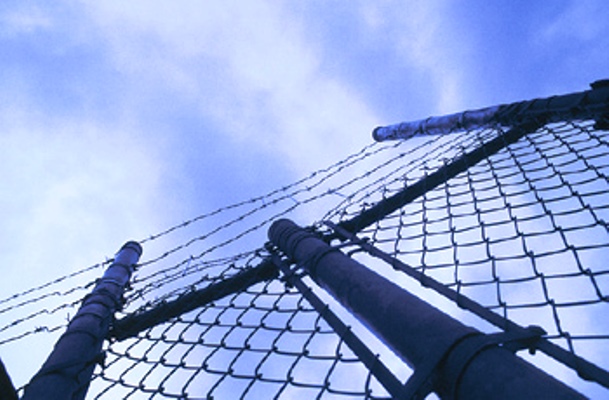In late April, Fluvanna Correctional Center for Women Warden Mariea LeFevers was replaced with an acting warden, but the Virginia Department of Corrections won’t provide details on the reason for the replacement or whether LeFevers will ever return to the job.
“The agency does not comment on ongoing administrative matters involving employees,” said VADOC spokesperson Kyle Gibson in an April 27 email.
In addition to questions about LeFevers whereabouts, the unexplained shake-up in top administration at FCCW is prompting a renewed call for the creation of a state office to oversee the Virginia Department of Corrections.
“We’ve certainly been aware of the rumors,” said Shawn Weneta, policy strategist for the ACLU of Virginia in an interview on Charlottesville Right Now. “What I can say about Fluvanna Correctional Center is that it has been under federal consent decree for not providing adequate medical care for the people that are incarcerated there for quite a long time. And that’s been extended a few times because they haven’t gotten in compliance.”
According to reporting by the Virginia Mercury, in 2016, the VADOC settled a lawsuit brought by inmates who alleged the poor medical care violated their constitutional rights. The DOC promised to make improvements, but 12 more inmates died and Judge Norman K. Moon ruled that the DOC was out of compliance with the settlement.
This year, the ACLU of Virginia is one of the organizations that pushed for a law that would create independent oversight of the Department of Corrections.
“There’s a potato seed board in Virginia that has independent oversight,” said Weneta. “I would argue one of the most difficult things to do in government is to exercise custody and control of another human being. And we do that on a large scale with Department of Corrections.”
The bill, which passed the senate unanimously but stalled in house appropriations, would have created an oversight board of 13 people including physicians, qualified mental health professionals, the formerly incarcerated, family members of incarcerated individuals, correctional officers, and members of the house and the senate. Those 13 board members would then elect an ombudsman who would have investigatory powers and be an arbitrator of disputes between staff and administration.
“It was very clear to us that this was a kill order from the administration. The governor’s administration had been pressured by the Department of Corrections,” Weneta said. “They did not want this bill. They did not want independent oversight of that agency.”
In an emailed statement, the administration confirmed opposition to the creation of the office.
“VDOC is currently overseen and subject to inspection from 9 entities but this bill would have established a redundant agency, the Office of the Department of Corrections Ombudsman, to perform the same function,” read the statement from Youngkin spokesperson Macaulay Porter. “Additionally, the bill created numerous operational challenges, security risks and conflicted with Va. Code 53.1-30. Due to these concerns, the administration opposed the legislation.”
Despite the bill’s failure to pass this year, there’s still a chance a “skinny version” of the oversight office could be created through the senate budget, according to Weneta.
“If it stays in the budget and makes it into the house budget as well, and it gets signed off on by the governor, that will create the oversight board,” Weneta said. “It’s not going to be the full version that we really want, but it’ll create the office and they can get started and then we can actually codify it at a later date.”
The outcome should be known by the end of June, Weneta said.
There is bipartisan support for creating the oversight office, said Ben Knotts, legislative director for the conservative organization Americans for Prosperity.
“Both sides of the aisle have done a good job at undermining trust in our institutions, and that’s a bad state of affairs,” he said. “The way you fix that is you give more clarity, more transparency… That’s going to create greater trust in our public safety institutions.”
Knotts says he favors the slimmed down version of the office, which he says would carry a price of $250,000, a third the estimated annual expense of the office that would be created by the tabled bill.
“Nursing facilities have this same mechanism, and it works great,” Knotts said. He says an office of oversight would help cut costs, a key goal of fiscal conservatives, and says lawsuits stemming from solitary confinement or poor medical care, like the suit brought by the Fluvanna inmates, could be avoided if there were independent oversight.
Knotts says an oversight office could also prevent price gouging by contractors because the ombudsman could review contracts.
“To me it’s like hiring a financial planner. It costs some money, but it’s going to get my fiscal house in order,” he said. “It’s the same thing with this. We can really have clarity about what we need to be doing to make sure we’re getting the bang for our buck to produce the outcomes we really want, which are less offenses, less victims and a safer Virginia.”
For the full interview with ACLU of Virginia Policy Strategist Shawn Weneta, click here.



